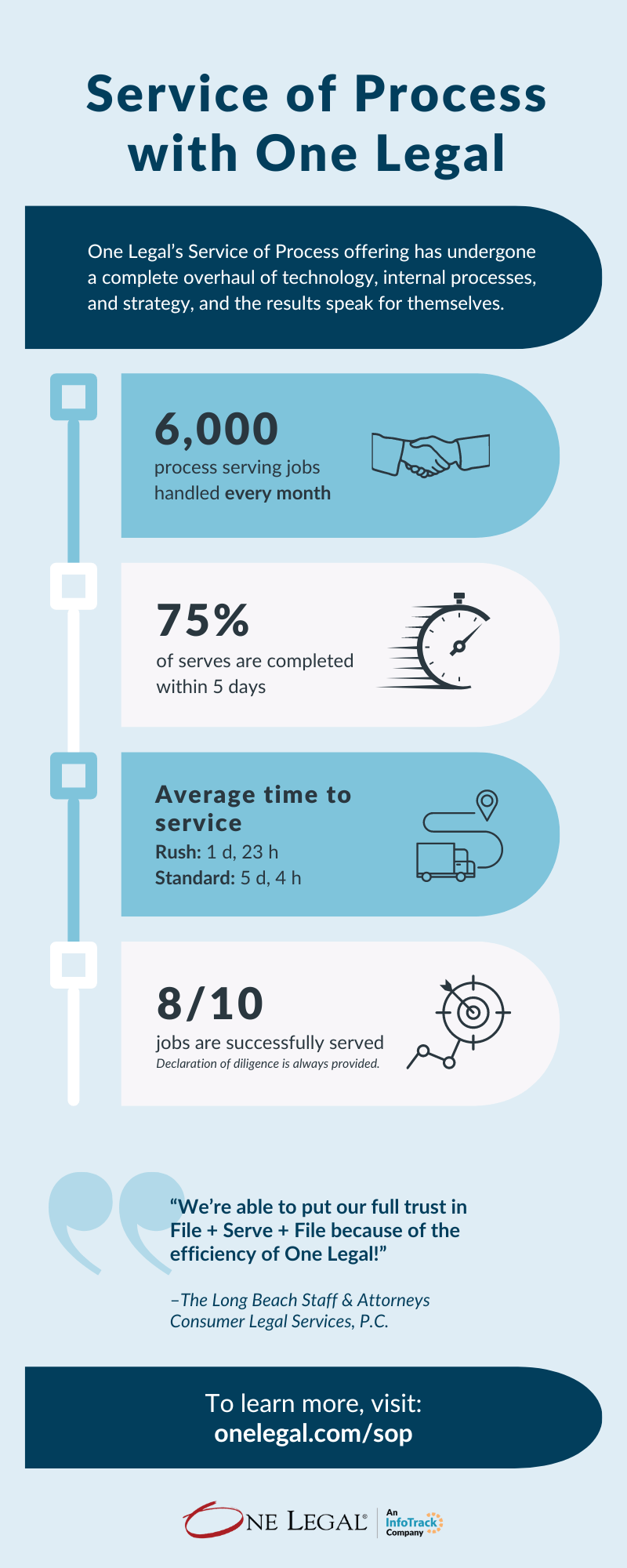Process Serving: Secret Steps to Guarantee Legal Notices Are Delivered Properly
Process Serving: Secret Steps to Guarantee Legal Notices Are Delivered Properly
Blog Article
Process Serving: An Essential Action In Lawful Paper Delivery
Process serving plays a crucial role in the legal structure, making sure that all celebrations are suitably informed of pending legal activities. Numerous kinds of legal documents are offered, each with its own ramifications and requirements. Recognizing the nuances of these obstacles is vital, as they can have extensive implications for the stability of lawful proceedings.
Significance of Process Serving
Process serving is a critical part of the lawful system, functioning as the official ways through which people are notified of legal actions involving them. This treatment is important as it makes sure that all parties receive correct notice, thereby promoting the concepts of due process and fair depiction in lawful procedures. Without effective process serving, people may stay unaware of legal actions, potentially bring about judgments made in their absence and serious effects.
The importance of process offering extends beyond simple notice; it also contributes to the honesty and efficiency of the judicial system. Effectively served files allow for timely feedbacks from the events entailed, assisting in the development of instances with the courts. Furthermore, adherence to legal requirements surrounding procedure serving minimizes the chances of conflicts pertaining to service, consequently minimizing hold-ups in legal process.
In addition, process offering serves as an essential safeguard versus unimportant suits. By ensuring that defendants are conscious of claims versus them, it assists to deter unjustified activities and encourages accountable legal methods. Inevitably, the role of procedure serving is foundational in maintaining the rule of law and making sure that justice comes to all individuals involved in legal issues.
Types of Legal Papers Served
Legal papers offered in the context of process serving include a wide variety of materials crucial for numerous types of lawsuit. Process Serving. These documents can consist of summons, writs, subpoenas, and problems, each offering an unique objective in the lawful procedure
A summons is commonly provided to notify a defendant of a lawsuit and force their appearance in court. Grievances, on the various other hand, lay out the plaintiff's instance and the alleviation looked for. Subpoenas are essential for compelling witnesses to produce or indicate proof, thus playing an important duty in the discovery procedure. Writs can consist of various types of court orders, such as writs of garnishment or expulsion, which guide specific activities to be taken.
In enhancement to these main records, process-server may also provide notifications, movements, or testimonies, depending upon the requirements of the situation. Each type of record served is regulated by certain lawful regulations and treatments, emphasizing the importance of prompt and accurate service. Ultimately, the efficient delivery of these legal papers is essential in making sure that all events are informed and that the judicial procedure can proceed without hold-up.
Obstacles Encountered by Process-server
Many obstacles challenge procedure servers in the execution of their obligations, commonly making complex a currently elaborate lawful landscape. One considerable obstacle is finding people who are incredibly elusive or deliberately preventing solution. This typically needs substantial investigatory skills and sources, as process-server should browse false addresses and restricted details.
Furthermore, procedure servers often experience aggressive scenarios. Serving papers can provoke protective reactions from receivers, resulting in conflicts that threaten the server's safety and security. Legal defenses for process-server vary by territory, including another layer of complexity to their job.
Time constraints additionally present a crucial obstacle. Several lawful papers have rigorous target dates, and falling short to offer them in a prompt fashion can cause extreme lawful effects for customers. This stress can be intensified by the requirement to abide by certain guidelines regulating service methods.

Refine Serving Methods
How do procedure web servers successfully guarantee that lawful documents reach their designated receivers? The methods utilized in procedure serving are vital for the effective delivery of these papers.
Along with personal service, different methods such as substituted solution can be made use of. This involves providing records to an individual of suitable age and discretion at the recipient's house or business, guaranteeing that the papers get to the intended party indirectly - Process Serving. One more technique is solution by mail, which might be allowed in certain jurisdictions, enabling papers to be sent out using certified or registered mail to offer proof of shipment
Finally, digital solution is obtaining grip, especially in scenarios where conventional techniques may show tough. This can consist of emailing papers or using court-approved digital declaring systems. Each technique has its very own set of policies and guidelines, making it crucial for process-server to be educated concerning the lawful demands in their jurisdiction to guarantee compliance.
Legal Effects of Improper Solution
When procedure serving is not performed correctly, significant legal effects can develop, weakening the credibility of useful content the entire lawful case. Incorrect service can lead to a termination of the instance, as the court may identify that the accused was not properly informed of the lawsuit against them. Process Serving. This termination can happen even if the complainant has a strong case, efficiently squashing Our site their resources and efforts spent in the litigation process
In addition, inappropriate service might cause hold-ups, causing more issues in the legal timeline. If an offender is not appropriately served, they might not understand their commitment to respond, bring about defaults that make complex the resolution of the case. In some territories, the plaintiff may be required to re-initiate the service procedure, incurring added expenses and expanding the timeline of the situation.
In addition, repeated failings in service can show poorly on the complainant's lawful guidance, possibly resulting in expert repercussions or permissions. Making sure correct procedure serving is not only a step-by-step need but a crucial element that promotes the integrity of the legal system and secures the civil liberties of all parties included.

Final Thought
Finally, procedure offering plays a vital duty in the lawful system by making sure that all events get appropriate notice of legal actions. The various kinds of records offered, combined with the difficulties dealt with by process servers, highlight the intricacies integral in this career. Utilizing proper techniques of service is crucial to copyright due procedure, and any type of failure to stick to lawful requirements can result in significant consequences, threatening the stability of judicial procedures.
Refine offering plays an important role in the lawful structure, guaranteeing that all parties are suitably informed of pending legal activities.Process offering is an important component of the lawful system, offering as the official ways by which individuals are alerted of legal activities including them. Additionally, adherence to lawful demands bordering process offering lessens the chances of disagreements concerning solution, thus reducing page hold-ups in lawful procedures.
When procedure serving is not carried out properly, significant lawful consequences can arise, weakening the legitimacy of the entire lawful proceeding.In final thought, procedure serving plays an indispensable function in the lawful system by ensuring that all parties get correct notification of lawful activities.
Report this page